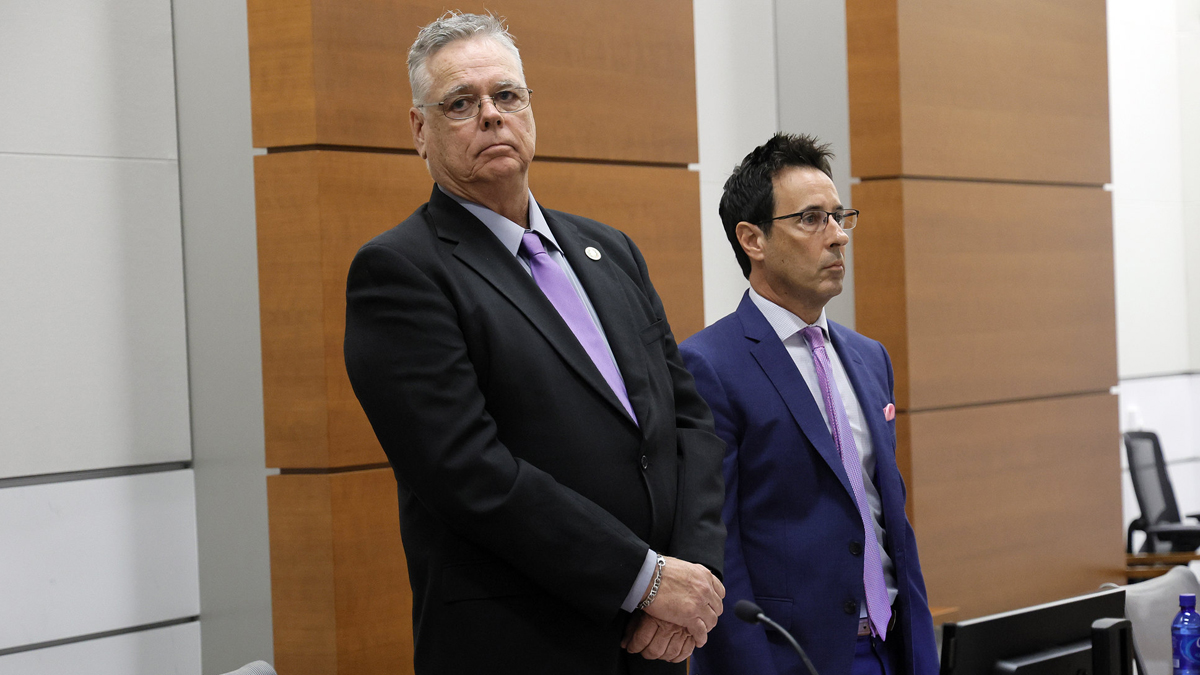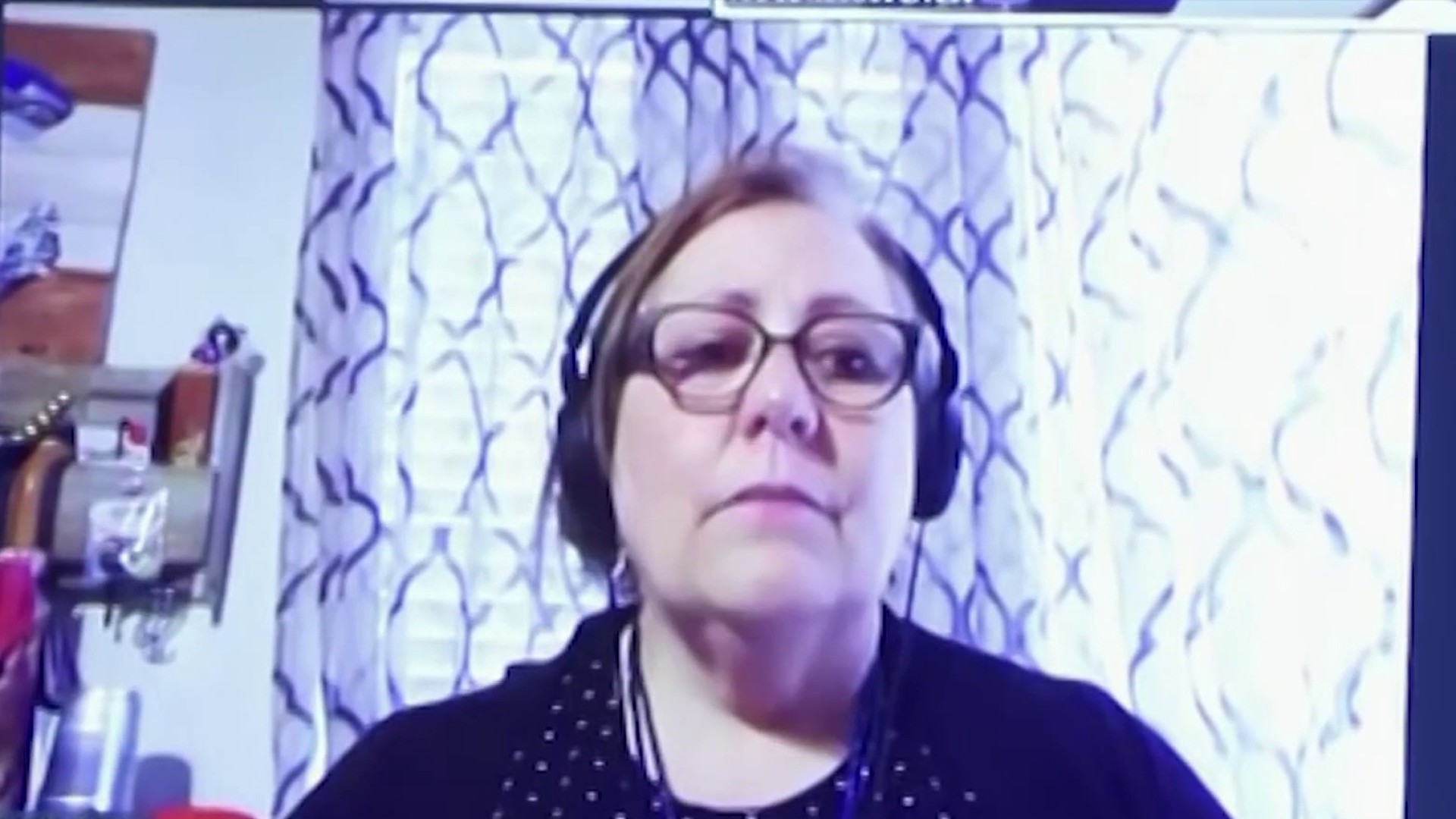Prosecutors rested their case Wednesday in the trial of a former Broward sheriff's deputy charged with failing to stop the Parkland school shooting.
The state's case against Scot Peterson concluded with testimony from Broward Sheriff's Office Det. John Curcio, the lead detective in the Feb. 14, 2018 shooting at Marjory Stoneman Douglas High School.
Curcio, a homicide detective for 25 years, fought back tears when a prosecutor asked him what Peterson's objective should have been during the shooting regarding the gunman.
“The goal is to stop him from killing people. That doesn't mean killing him, it means slowing him down. It means distracting him. It means doing anything so that kids can find safety,” Curcio said, his voice breaking.
Get South Florida local news, weather forecasts and entertainment stories to your inbox. Sign up for NBC South Florida newsletters.
Curcio also testified about where Peterson was during the shooting, based on surveillance videos on campus. He also told the jury about a statement Peterson gave in the days after the tragedy.
SCOT PETERSON TRIAL
During cross-examination, defense attorneys and Curcio went back and forth over whether Peterson could have done more to save lives.
Prosecutors allege that Peterson, the school's assigned deputy, knew the shooter was inside the 1200 building but chose not to confront him during the six-minute attack.
Peterson insists that because of the gunshots' echoes, he did not know the shooter's location and took cover next to an adjoining building while he tried to pinpoint the sounds and summon help. Peterson stayed there for 40 minutes, long after the shots ended and other officers had stormed inside.
During two weeks of testimony, prosecutors called to the witness stand students, teachers and law enforcement officers who have testified about the horror they experienced and how they knew where the gunman was. They also called a training supervisor who said Peterson failed to follow the protocols for confronting an active shooter.
The defense also called on witnesses to will testify they were also uncertain of where the shots were coming from. Because of scheduling conflicts, a few of them have already testified, including a deputy who arrived at the school during the shooting. He thought the shots were coming from the football field, more than 100 yards from the 1200 building.
“We weren’t sure what was going on," said former MSD teacher Suzanne Camel. "It sounded like something was hitting it, or the building was collapsing or something huge. It was just dreadfully loud and you could tell something was wrong, it was very wrong."
The defense also called Brian Miller to testify. He is one of several BSO deputies who lost their jobs in the wake of the massacre for failing to respond that day, but then Miller was reinstated by a judge with back pay. He told the jury what he told Peterson the day after the shooting.
“I thanked him for what he did," Miller said. "He was very upset and distraught and I was consoling him."
Peterson is charged with seven counts of felony child neglect for four students who were killed and three who were wounded on the third floor of a classroom building. Peterson arrived at the building with his gun drawn 73 seconds before the gunman reached the third floor. But instead of entering, Peterson backed away as gunfire sounded. He insists that he did not know where the shots were coming from because of echoes between the buildings.
Peterson is also charged with three counts of misdemeanor culpable negligence for the adults who were shot on the third floor, including a teacher and an adult student who died. He also faces a perjury charge; prosecutors say he lied to investigators. Peterson was not charged in connection with the 11 who were killed and 13 who were wounded before he arrived at the building.
Peterson, 60, could face almost 100 years in prison and lose his $104,000 annual pension if convicted.



